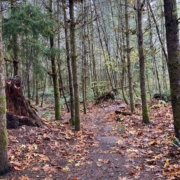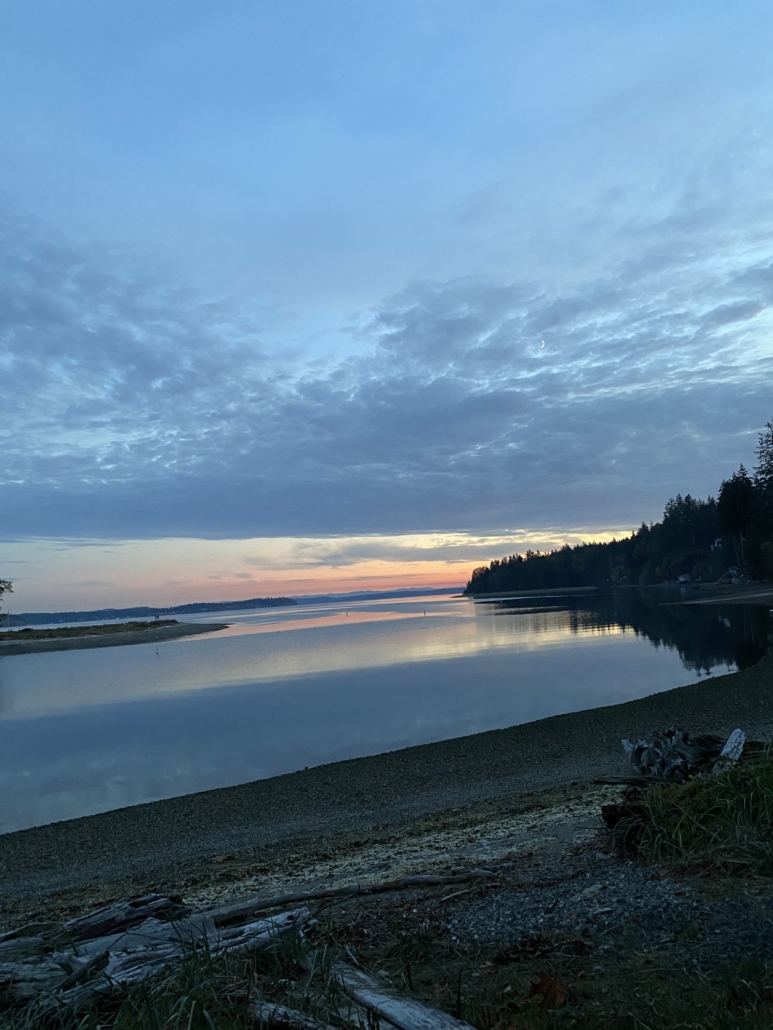Western Washington Poetry Network
In January I traveled to Book Tree in Kirkland to attend a celebration for the launch of the Western Washington Poetry Network. It’s been around for at least a year or two, but this was the official “big deal” launch. Representatives from almost every writing group and open mike from Vancouver, Washington, to Bellingham to Duvall were there. There were cookies and wine. It was raucous good fun.
I was asked to speak about our poetry group—the only showing (so far) from Mukilteo—and, in part because I’m not sure we want new members, I talked instead about this blog. I told them how many poetry books I read in 2024, and how many book reviews. I invited people to take a look. I promised to promote WWPN.
And, as a result, I was handed several books by local poets. Like I needed more poetry books! (Of course I did.)
One of these was a coil-bound 5×8 collection with a tan cover bearing only the title, Five Oaks, and the poet’s name,  all in lower-case: chris dusterhoff. I think chris himself handed me this book, but I’m not sure. I looked him up at the WWPN site, and found his name (again lowercase) associated with the 2024 letterpress anthology, The Examined Life.
all in lower-case: chris dusterhoff. I think chris himself handed me this book, but I’m not sure. I looked him up at the WWPN site, and found his name (again lowercase) associated with the 2024 letterpress anthology, The Examined Life.
Five Oaks was originally published in 1999 by Spankstra Press. This edition, the third printing, is from New Pacific Press, 2023. In the introduction chris explains an old goal to publish a chapbook a year, and that—in the midst of a too-busy year—he chose to unearth poems from earlier in his life. Some are from high school, some about his sister Laura (to whose memory the book is dedicated), some are about youthful traveling, “headlites glowed / & trees wept on the shoulder” (from “in subtle darkness”).
The poems are in lowercase and nearly free of punctuation (even apostrophes for contractions are left out), and occasionally include beatnik spellings (cupajava) or possibly misspellings or typos—who knows!—and even so I enjoyed reading Five Oaks all the way through. It allowed me to glimpse a young poet testing the wheels on a new vehicle, experimenting with form and language and voice.
Yes, a few of the poems are long and as meandering as the journeys they depict:
into Bismarck over Missouri rvr
revisited
molten rvr of ice
11:45 am out of Bismarck
through fargo, n.d. on borderlinew/ the model for modeltrain depot
(from “Starting from Portland – Dec 1991”)
But even in these, in places, the language can turn magical: “leaves dance / a marionette jig… / with VanGogh pulling / the strings” (from “Vacation”). In another: “mystic paleblue morning / lavender / birdsong – what bird? / Portland city gray skycloud” (from “6:30 am September 2 ad 1991”).
So, I enjoyed reading Five Oaks and getting to know the young chris dusterhoff as he, a while back, “walked out / into applecore / days” (from “day of a hundred reckonings”). And if that isn’t a good reason to keep reading and sharing with you, I can’t think of any other.
getting to know the young chris dusterhoff as he, a while back, “walked out / into applecore / days”
Thanks for riding along with me. And don’t forget to take a look at WWPN. Maybe your path will cross with someone unexpected.
Bethany

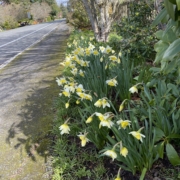
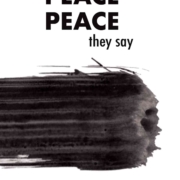
 Every February for the last six or seven years I have taken part in a postcard exchange for peace.
Every February for the last six or seven years I have taken part in a postcard exchange for peace.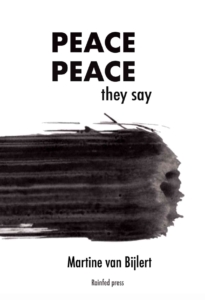 // always stacked on the bodies of the tired”; “listening // to a lone bird sing… / I woke to rain // wanting to know where I could // learn a song / like that”; “can we talk about peace building // about saying bodies / and meaning institutions // saying agreement / and meaning a document.”
// always stacked on the bodies of the tired”; “listening // to a lone bird sing… / I woke to rain // wanting to know where I could // learn a song / like that”; “can we talk about peace building // about saying bodies / and meaning institutions // saying agreement / and meaning a document.”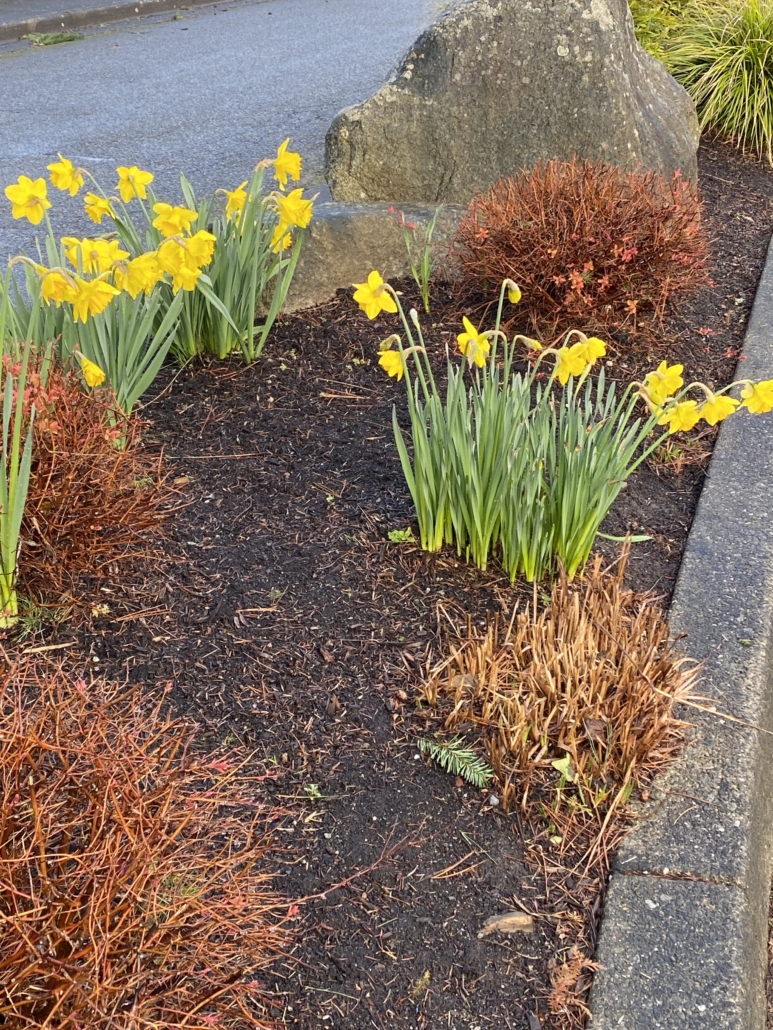
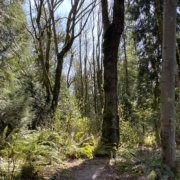
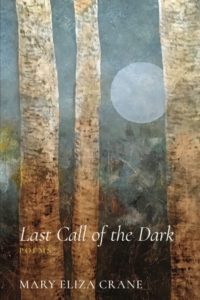 decades. Our paths have crossed at poetry open mics in Kirkland’s Book Tree and at Easy Speak in Wedgewood (Seattle); she is a co-host of her local poetry night in Duvall. To learn more about Last Call of the Dark, see my review (of course), or visit
decades. Our paths have crossed at poetry open mics in Kirkland’s Book Tree and at Easy Speak in Wedgewood (Seattle); she is a co-host of her local poetry night in Duvall. To learn more about Last Call of the Dark, see my review (of course), or visit 